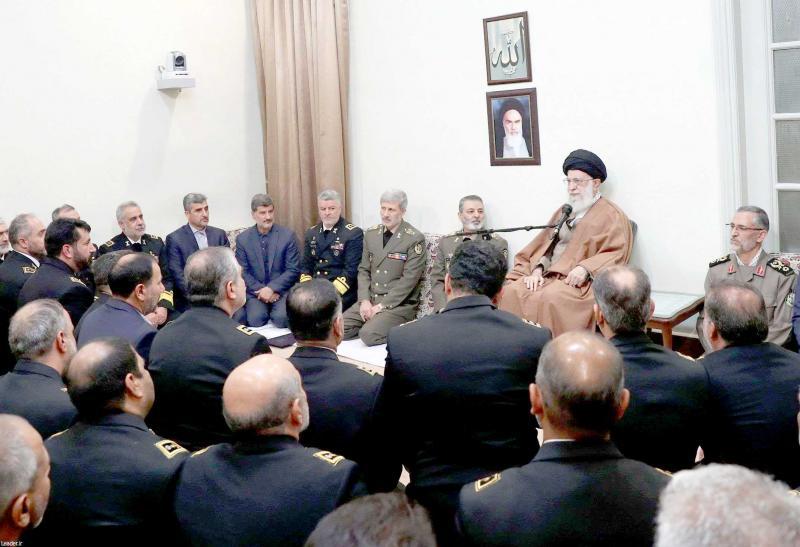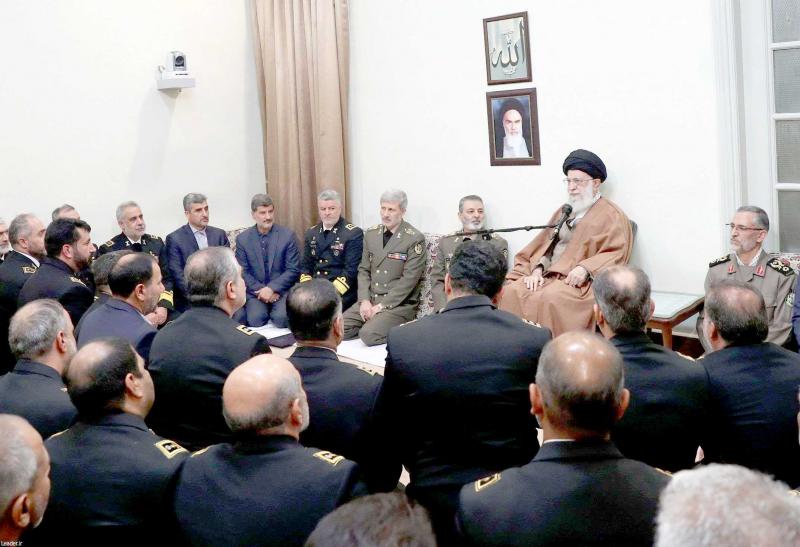Empty rhetoric did not save Saddam or Qaddafi, it will not save Iran
As they face the impasse of US sanctions and their aftermath, incessant protests and internal unrest, the Iranian rulers are behaving like Saddam Hussein did at the end of his rule in the face of a looming American invasion of Iraq. So did Muammar Qaddafi, for that matter, when clashes broke out in Benghazi between his army and its popular committees and the Islamic opposition backed by “our brethren in Qatar,” as he had put it.
Iranian leaders are doing the exact same thing as those two. They are trying to convince the Iranian citizen that he is the first and last victim of America’s sanctions, that he is the target of its aggressive policies and that he must increase his commitment to the Iranian government, bear all his bitterness and renounce his freedom, security and the survival of his children for the nearly sure victory over the Americans and their allies. The Iranian citizen won’t be fighting for just his present and his future but for the pride of his long history and heritage.
Just like Qaddafi and Saddam before them, the Iranian rulers are the ones who should bear the biggest share of the blame for the plight of their people because of their stubbornness and arrogance. They opted for policies of defiance and confrontation but armed only with muscle flexing and slogans, the same weapons that were of no good use to anyone before them.
In a conference on terrorism and regional cooperation attended by the speakers of the parliaments of Afghanistan, China, Pakistan, Russia and Turkey, Iranian President Hassan Rohani threatened European countries and the United States with a “flood” of drugs, refugees and attacks should US sanctions weaken Iran’s ability to address these problems.
“We face a comprehensive attack that threatens not only our independence and our identity but also our historic relations,” he said of US sanctions. He renewed his threat to close the Strait of Hormuz should the United States try to prevent his country from exporting its oil.
Iranian news agency Tasnim quoted the head of the Islamic Revolutionary Guard Corps General Mohammad Ali Jafari, as saying: “We have the scientific capability to increase the range of our missiles but this is not part of our current policy because most strategic enemy targets are already within 2,000km. This range is enough to protect the Islamic Republic of Iran.”
Commander of the Iranian Air Force General Aziz Nasirzadeh went one notch above Jafari’s threat and announced that Iran was endeavouring to increase the range of its missiles. “One of our most important programmes is to increase the range of missiles and ammunition. We do not see any restrictions on us in this area,” Nasirzadeh said.
The insistence of the Iranian rulers on escalation through defiance and stubbornness and on rejecting negotiations and dialogue as they face the risk of catastrophic consequences for their own regime and their people is beyond reason or wisdom.
They know the safest and most effective way for them to save face before their people and the world is to stop useless defiance and adopt a policy of compromise internally and of rational dialogue with the outside world. It’s as simple as that. They’ve got to let go of their supremacist dreams of national superiority, for such dreams died and disintegrated centuries ago and are no longer suitable for the age of roaming on Mars.
Rather than persist in arrogance and stoking simmering fires, Iran’s al-Wali al-Faqih can, with a single pen stroke, halt all funding of the gangs of murderers, arsonists and looters in Iraq, Syria, Yemen, Lebanon and the Palestinian territories. And that’s just abroad.
Inside Iran, he can easily stand up to corrupt associates and agents. He can order Iran’s riches be spent helping the millions of poor Iranian citizens, on infrastructure and construction projects, on revitalising Iran’s trade and industry and on restoring Iran’s friendly relations with its neighbours. Wouldn’t that be much more beneficial to the Iranians, the region and the world?
If Saddam had spent half of the revenues of the Iraqi treasury on improving infrastructure, boosting the economy, facilitating the lives of Iraqi citizens and guaranteeing their dignity and livelihood, millions of Iraqis would have sprung to defend him and his regime. He would still be smoking his Cuban cigars and celebrating the coronation of his faithful son Qusay.
Qaddafi was no different. Had he discarded his Green Book, cancelled his “People’s Republic” and established a state based on the rule of institutions, justice and the law and had he been generous to his opponents before his supporters with just half the fortune that he and his children stashed abroad or wasted on arming guerrillas and political parties here and there, he would still be reclining in his tent now and watching his faithful son, Saif al-Islam, run the Qaddafi family kingdom safely.
It is too late for Saddam and Qaddafi to regain some degree of rationality and realism, after having ruled for a long time and imagined themselves as Antarah Ibn Shaddad or Khalid Ibn al-Walid or Omar Mukhtar.
The Iranian regime, however, has time to reconsider its approach and grab the safety lifeline available to it. Tehran has the opportunity to spare its people unnecessary hardships before it goes down the same fateful road of Tripoli and Baghdad but will it listen?
Ibrahim al-Zoubeidi is an Iraqi writer.
This article was originally published in The Arab Weekly.







